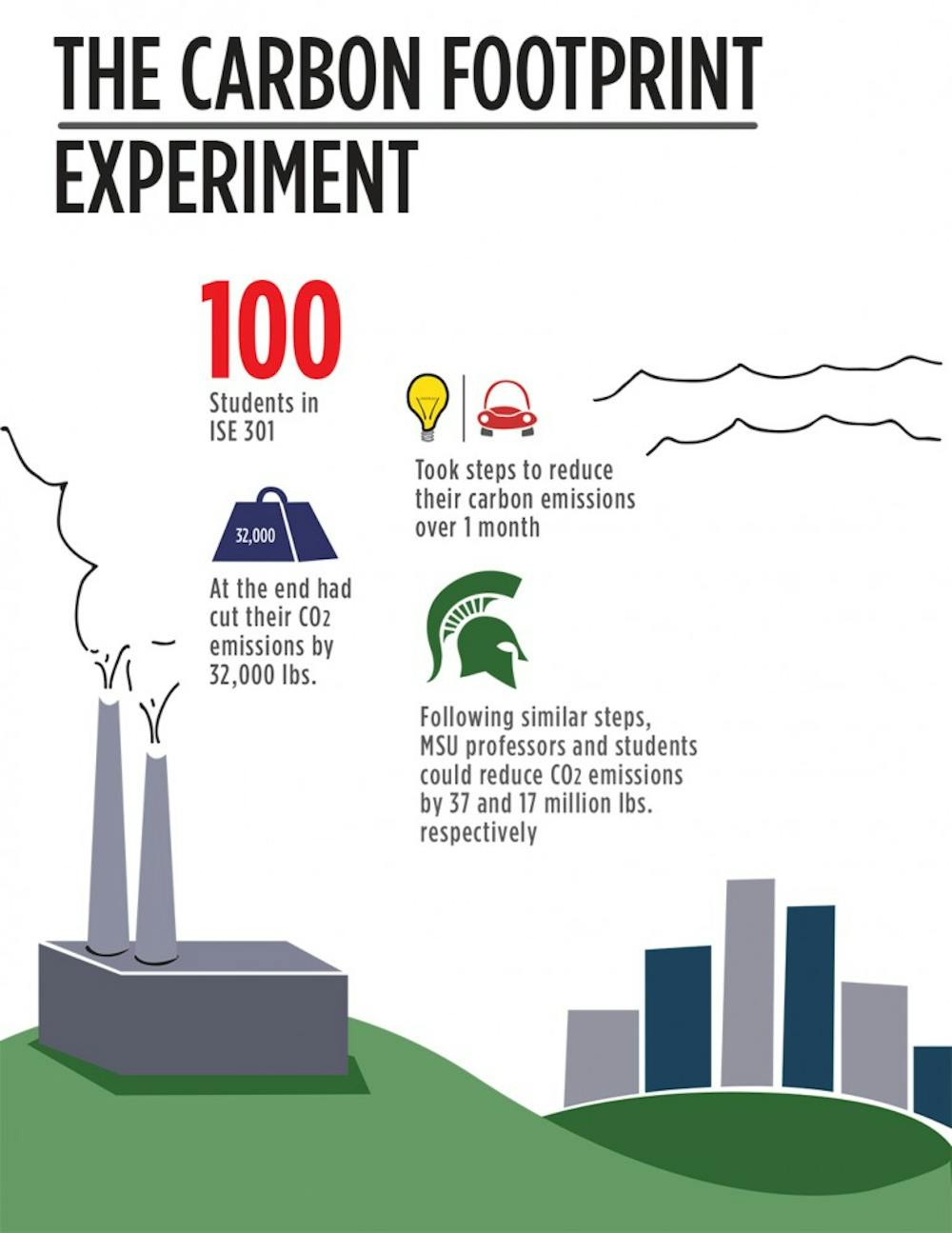A carbon footprint, the amount of carbon dioxide emitted due to the consumption of fossil fuels by a particular person, follows a human being throughout their entire life.
In an attempt to truly understand and take on the problems that come with an overuse of fossil fuels, five MSU Honors College students have set out to find and display the effects of each individual’s carbon footprint on the planet.
The students decided that education and bright, eye-catching color is the best way to bring awareness to this problem.
Currently in North Kedzie Hall, there is a massive wall display of 75 out of 100 taken carbon footprints of the teacher education students from ISE 301. The project, accordingly called “carbon footprint,” had the students busy as they measured their total energy use for one month.
During that month, students figured out methods to reduce the amount of fuel they used, and they put those methods into action to reduce their own carbon footprints.
The damage each person inflicts on the environment can be considerable, especially when giving cognitive thought toward the amount of fossil fuels used each day by humans.
“These students took content in a science course and applied it to their daily lives and they actually made decisions to change their behavior once they figured out how much fuel was being burned for them to either drive around, use electricity or heat,” said Jane Rice, an instructor and specialist in geological science at MSU.
By thinking globally while taking action in a local setting, the students tried to show the impact of one small project trying to combat global climate change.
“Once you have a set number, it puts into perspective that this (is) a real problem we are facing,” elementary education sophomore Emily Aron said.
Aron was one of the five Honors College students who took part in the study.
The numbers are everything when it comes to climate change.
The students estimated that if all MSU students regulated their carbon dioxide emission, there would be 17 million fewer pounds of CO2 being put into the air for one month.
Another 37 million fewer pounds would enter the air if all state of Michigan teachers did the same for one month.
“You can do anything from carpooling, air drying clothes, walking or biking to class and turning off lights to reduce a carbon footprint,” elementary education junior Megan Borgeson said.







